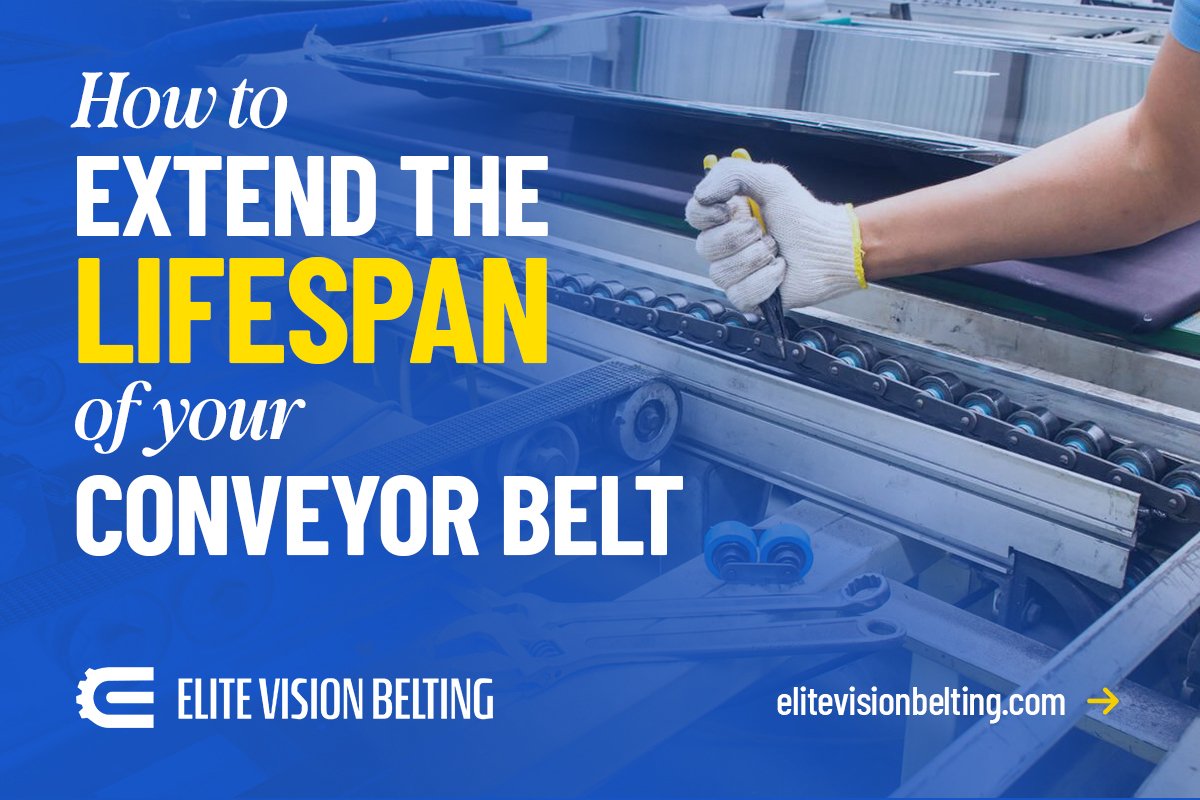Introduction
Manufacturing and logistics are the most important industries that depend on industrial conveyor belts. They give to the operational transportation of materials that sinks manual labor and boosts output. However, selecting the best conveyor belt needs careful consideration of some factors to confirm optimal performance, durability, and value.
Using the incorrect conveyor belt can result in regular breakdowns, unnecessary repairs as well as premature wear. Thus, before making a purchase, companies want to assess important aspects including material suitability, tensile strength, scrape resistance, and maintenance needs.
Key Considerations
1. Material and Application Suitability
Conveyor belt compatibility with the items being conveyed is one of the most important considerations. Various belt kinds are needed by different businesses depending on the items they produce. Think about this:
· The food and pharmaceutical industries require agro-grade belts made of PVC (also called as PVC conveyor belts) or modular plastic that are simpler to clean.
· Heavy industry and mining sectors need rubber belts that are extremely resilient to harsh substances and large weights.
· For chemical processing, belts must be resistant to corrosion and chemical contact.
· Packaging & Logistics: For effective product handling, choose belts that are strong but lightweight.
You can ensure smooth operations and avoid contamination or material spills by selecting a belt that is suitable for your use.
2. Tensile Strength
A conveyor belt's tensile strength is the highest force it can support before cracking or deforming. Under high loads, a belt that has little tensile strength may break, requiring replacement and downtime.
Take into account the following when calculating the necessary tensile strength:
• The weight of the materials being transported.
• Roller-imposed pressure and the belt's operating speed.
• Whether it is a rubber conveyor belt, PVC conveyor belt, or fabric-reinforced.
The ideal choice for businesses that move bulk items across long distances are high-tensile-strength belts.
3. Abrasion and Chemical Resistance
Conveyor belt manufacturers often work in challenging situations in which belts are protected from chemicals, destructive materials, and high temperatures. Thus, it is important to select a belt that has a high level of resistance against weakening.
· Scrape Resistance: For businesses that handle scrape materials like rocks, coal, or metal components, scrape resistance is important. For these types of uses, rubber belts with strengthened layers are seamless.
· Chemical Resistance: Belts made up of synthetic materials that are resilient to chemical destruction, such as Teflon or PVC conveyor belts, are compulsory for industries that deal with acids, oils as well as cleaners.
· Temperature Resistance: An unaffected heating belt is needed if the belt is subjected to high temperatures, as happens in the baking or processing of metals sectors.
Selecting a belt with suitable resistance characteristics prolongs its life and guards against expensive damage.
4. Maintenance and Ease of Repair
Conveyor belts are essential to be sustained regularly to operate properly although some belts require more care than others. When selecting a belt, take into account:
· Ease of Cleaning: conveyor belts produced for food should have flat sides to avoid material buildup.
· Repairability: Part replacement becomes simple with modular plastic belts that minimize downtime.
· Lubrication Requirements: Though some belts, such as synthetic belts, are low-maintenance, others basic regular lubrication.
· Tracking Stability: Consistent off-track movement of a conveyor belt demands continuing rearrangement that increases maintenance necessities.
Choosing a low-maintenance belt lowers long-term costs and operating interruptions.
5. Cost vs. Quality Balance
Getting a high-quality conveyor belt provides higher long-term value, regardless of the attraction to purchase a less expensive one to save money. Poor belts weaken more quickly, need on-time and regular replacements, and more interruptions.
· To strike a balance between price and quality, weigh upfront expenditures against long-term durability.
· Take into account the belt's lifetime and guarantee.
· Select a belt that satisfies certifications and industry norms.
· Over time, assess the expense of preservation and repairs.
Spending a little extra on a strong, high-quality conveyor belt will help you save money over time by reducing maintenance expenditures and operational disturbance.
Additional Considerations
1. Belt Speed and Load Handling
For efficiency, conveyor belts ought to operate at their ideal speed. Although a slow-moving belt lowers productivity, an excessively quick belt could spill materials.
Make sure the belt you choose can manage different load circumstances without sacrificing speed or efficiency and meets your production needs.
2. Customization Options
Conveyor belts must be specially made for some applications to satisfy particular operational requirements. Elements like
· The thickness and width of the belt
· Texture of the surface (rough, smooth, or grooved for traction)
· Cleats and sidewalls for transport that is inclined
Considering modification choices guarantees that the belt will integrate easily with your current conveyor system.
Conclusion
Choosing the proper industrial conveyor belt is important for conserving productivity, reducing downtime, and taking downkeep expenses. Wear and tear resistance, strength, cost-quality balancing, easiness of care, as well as material correctness, are all important concerns for industries when making a purchase.
Purchasing a high-quality conveyor belt increases the effectiveness of operations and guarantees long-term dependability. For superior solutions catered to your company, speak with the professionals at Elite Vision Belting if you are not sure which conveyor belt best meets your industrial needs.
Get in touch with us now!





